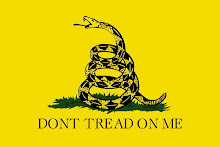A Conversation About Race: A Film By Craig Bodeker
Review By John Ingram, Special to the National Policy Institute
We can imagine that when he called for yet another “conversation on race” in his much-lauded speech in Philadelphia, then-candidate Barack Obama had in mind the usual format for “conversations on race” in America:First, non-whites vent. Then, whites apologize, self-excoriate, and generally grovel on the floor in a contest to see who can contort themselves into the most exquisite knot of multicultural contrition.
As Craig Bodeker tells it, he was once balled up on the floor like this. As a fifth-grader in Minnesota, a demonstration by two teachers on the “racism” of his white classroom burned into his mind the messages all of society has come to accept: whites are bad. Everyone else is good. End of story.
But Bodeker, a first-time filmmaker from Colorado with musician-cool shoulder-length hair, must have tired of the floor contortions. And when yet another call for “conversation” went out, he answered.
But be warned. Bodeker’s “Conversation on Race,” an hour-long black-and-white documentary shot in Denver, is surely not what now-President Obama – or most other Americans — wanted to hear. Bodeker speaks to the audience as a white man who has grown suspicious of the terms “racist” and “racism,” and frustrated by the way in which the double standard on race is used to hammer whites.
His formula is simple. He simply puts the “believers” in racism, as he calls them, on camera, and asks simple questions. What is racism? Can you give an example? Bodeker ran an ad on Craigslist under the heading “Ending Racism Now” for some interview subjects; others are interviewed on the street. Aside from the basic qualification that they agree “racism” is rampant, they are all races and ages.
The answers are as amazing as they are commonplace. Subjects are hard-pressed to provide concrete examples of racism. One black subject reported that being complimented on his dancing by a white man was “racism.”
Bodeker’s treatment of his subjects is as gentle as could be: his questions are either open-ended, or present a contradiction. The reactions to questions on why Asians outscore whites on standardized tests — after the subjects have all confidently explained that whites outscore blacks because whites wrote the tests — are amusing.
Some subjects come across as silly (one white woman tells us that racial distinctions are unnecessary because of the continuum of the universe, and that “I am the rock, the wall, the tree…”), but most offer the mouthings on race we hear everyday. “Race is a social construct,” one white male says, slowly, as if he’d thought of it himself. Which is doubtful, given that I’ve been hearing whites tell me that, using that exact phrase, for years — and all of them deliver it as if they, too, had come to this conclusion themselves, after lengthy study and thought.
But what’s refreshing about this film is that these everyday mouthings on race are presented against a backdrop of Mr. Bodeker’s critical observations – as opposed to their usual presentation: unquestioned and celebrated, Emperor’s New Clothes-style.
“A Conversation on Race” is smartly produced: the editing paces well, it is not overlong, and the camera work is nicely varied. The soundtrack is especially good, with the occasional “Law and Order”-style “donk donk” for punctuative effect.
At my screening of the film, the opinion of one woman (who is not, as the phrase sometimes goes, “pro-white”) was that Bodeker came on a little too strong — she wanted more documentary, less documentarist. And yes, he does get a little worked up at times. But to my mind, it was always within bounds, and sincere. (It could be yet another sign of anti-white bias that a white man can’t get even a little insistent about race without being branded as a white supremacist.)
It is a final observation from Bodeker that underscores my own frustration: on the subject of race, whites are “allowed” only two positions: complete indifference, or “white supremacy.” As they slip further toward minority status in the United States, room must be made for the sensible white advocate who does not seek the oppression and domination of other groups, but self-direction and self-protection for whites.
In “A Conversation on Race,” the stage is set.
Wednesday, October 21, 2009
Subscribe to:
Post Comments (Atom)
Visitors
Followers
Blog Archive
-
▼
2009
(14)
-
▼
October
(11)
- Obama Protects Sexual Deviants
- Does Obama know anything about Economics?
- Maobama
- Southern Poverty Law Center Hypocrisy
- Blogging Blue Doesn't Like Me.
- FILM REVIEW: A CONVERSATION ABOUT RACE: A FILM BY ...
- If you haven't watched it, you need to.
- GOOD LAUGH
- Water Cooler Conversation: The Liberal Co-Worker a...
- GWEN MOORE: WISCONSIN'S POLITICAL HEMORRHOID
- Liberal -VS- Conservative
-
▼
October
(11)

No comments:
Post a Comment